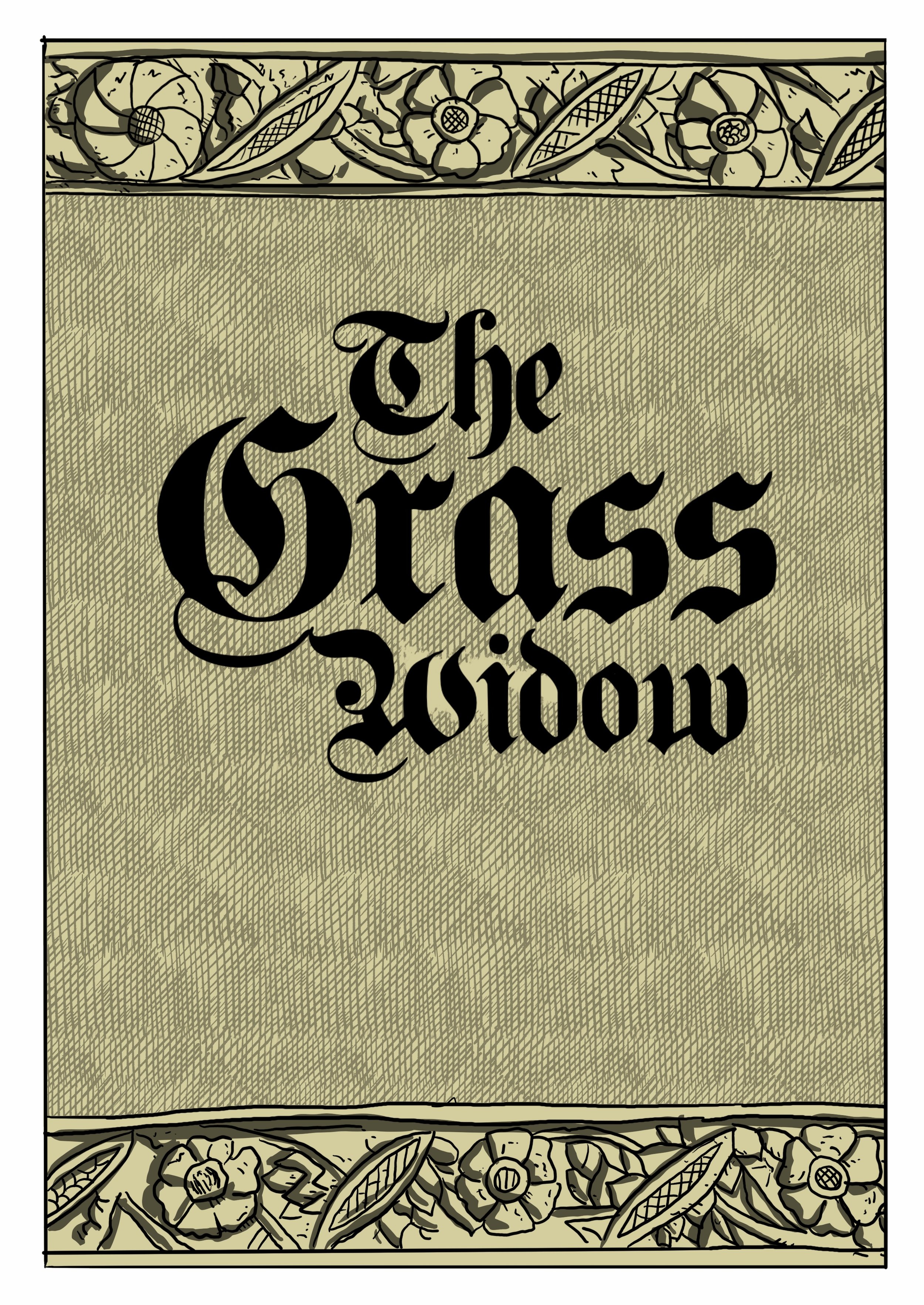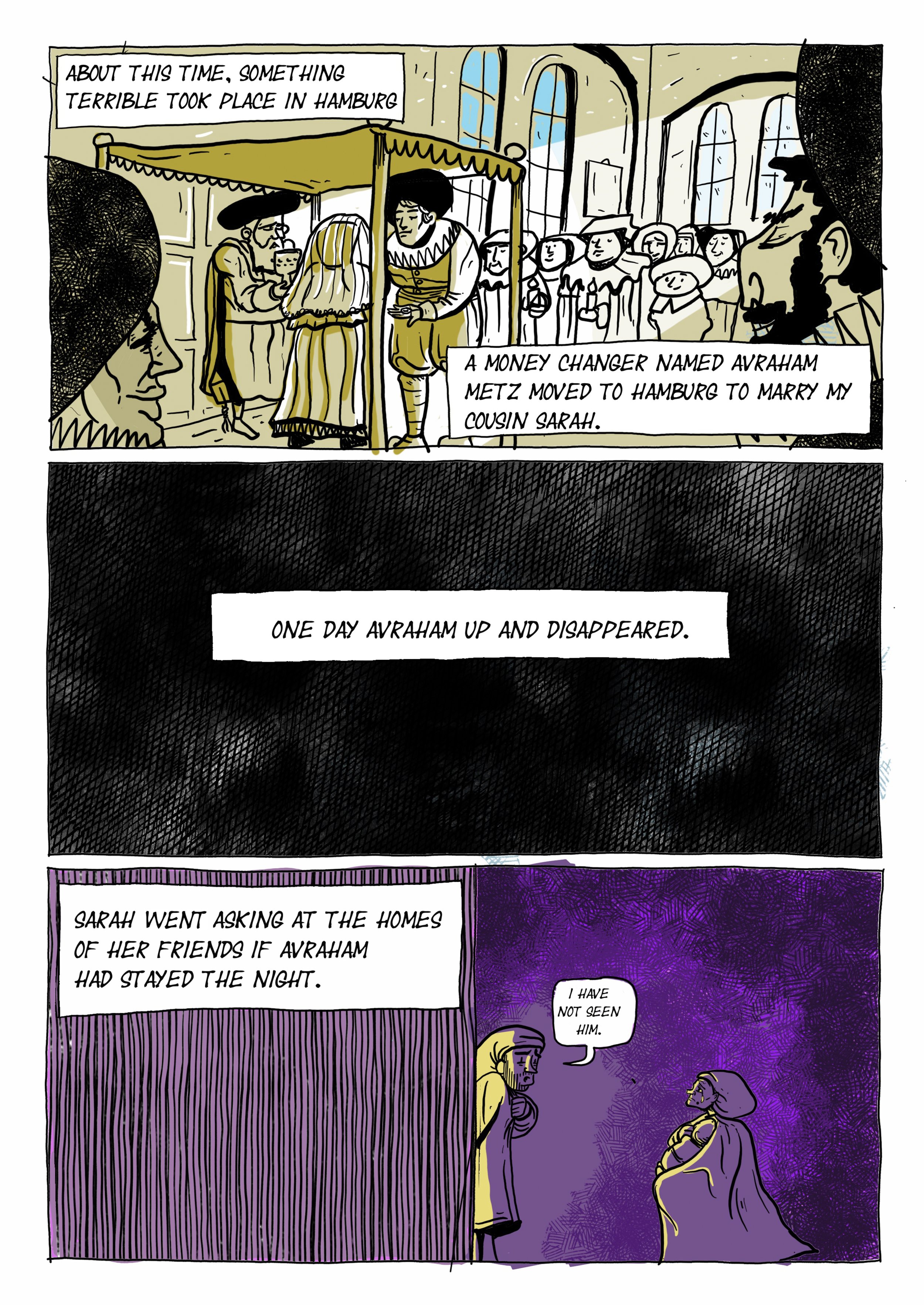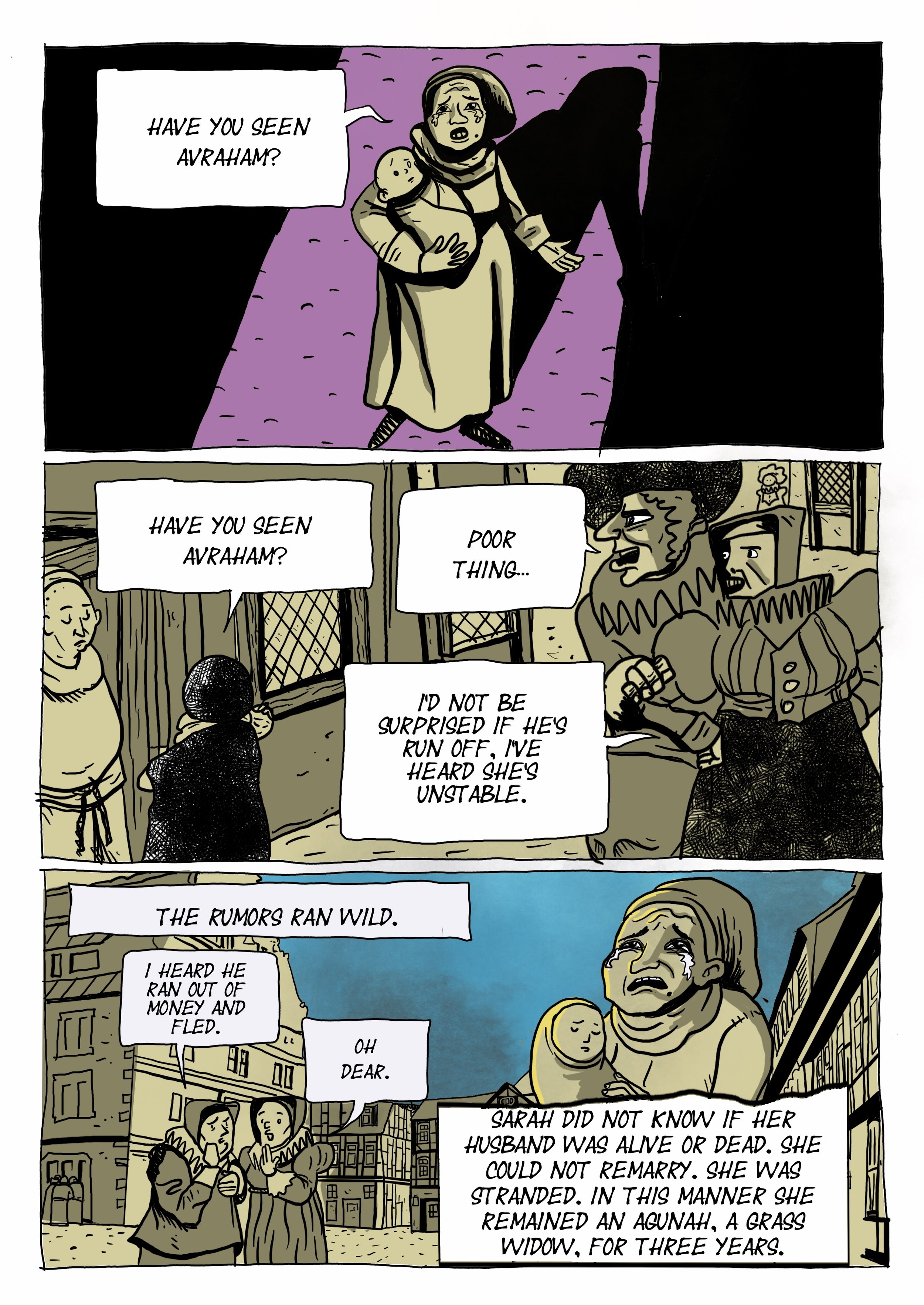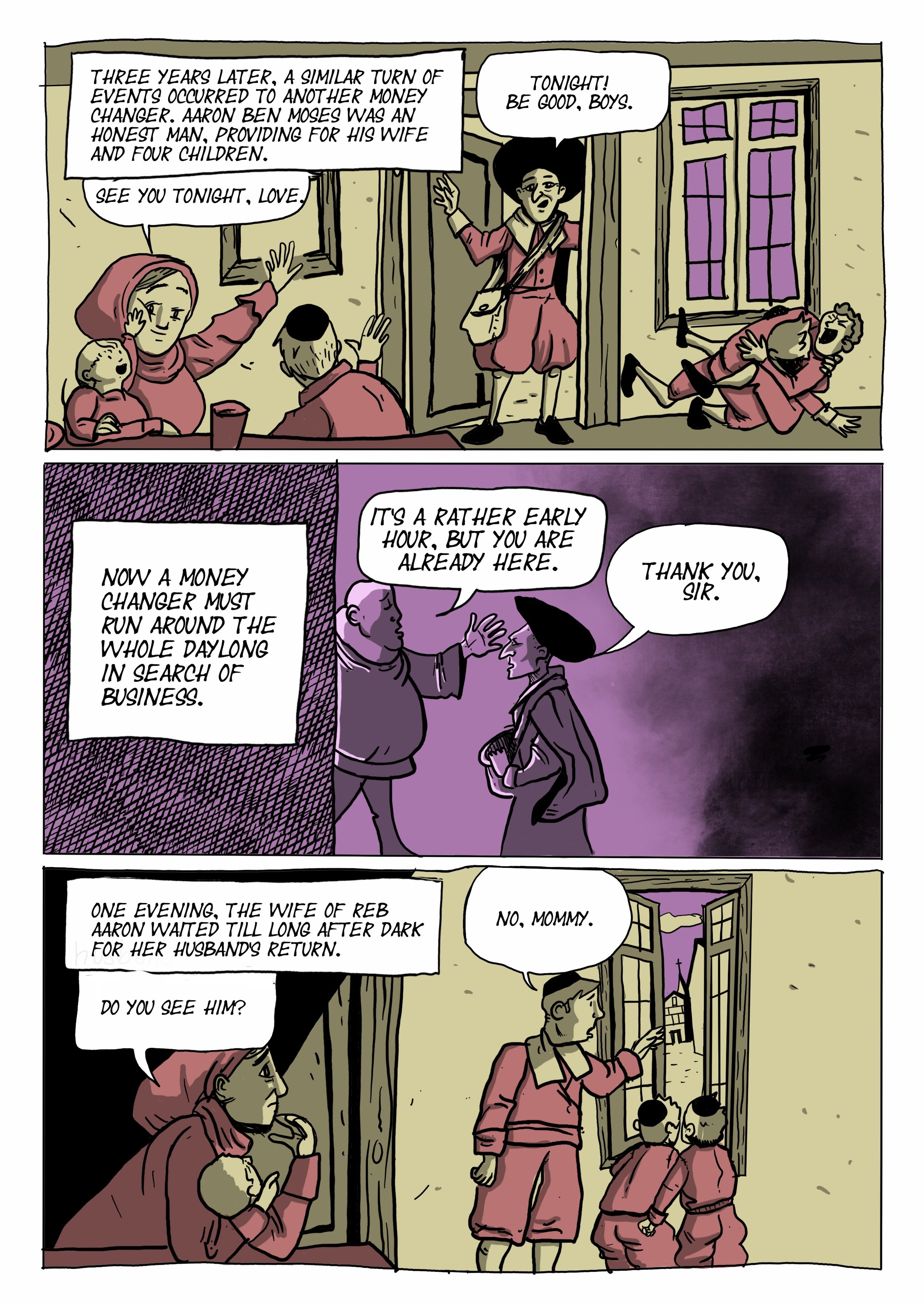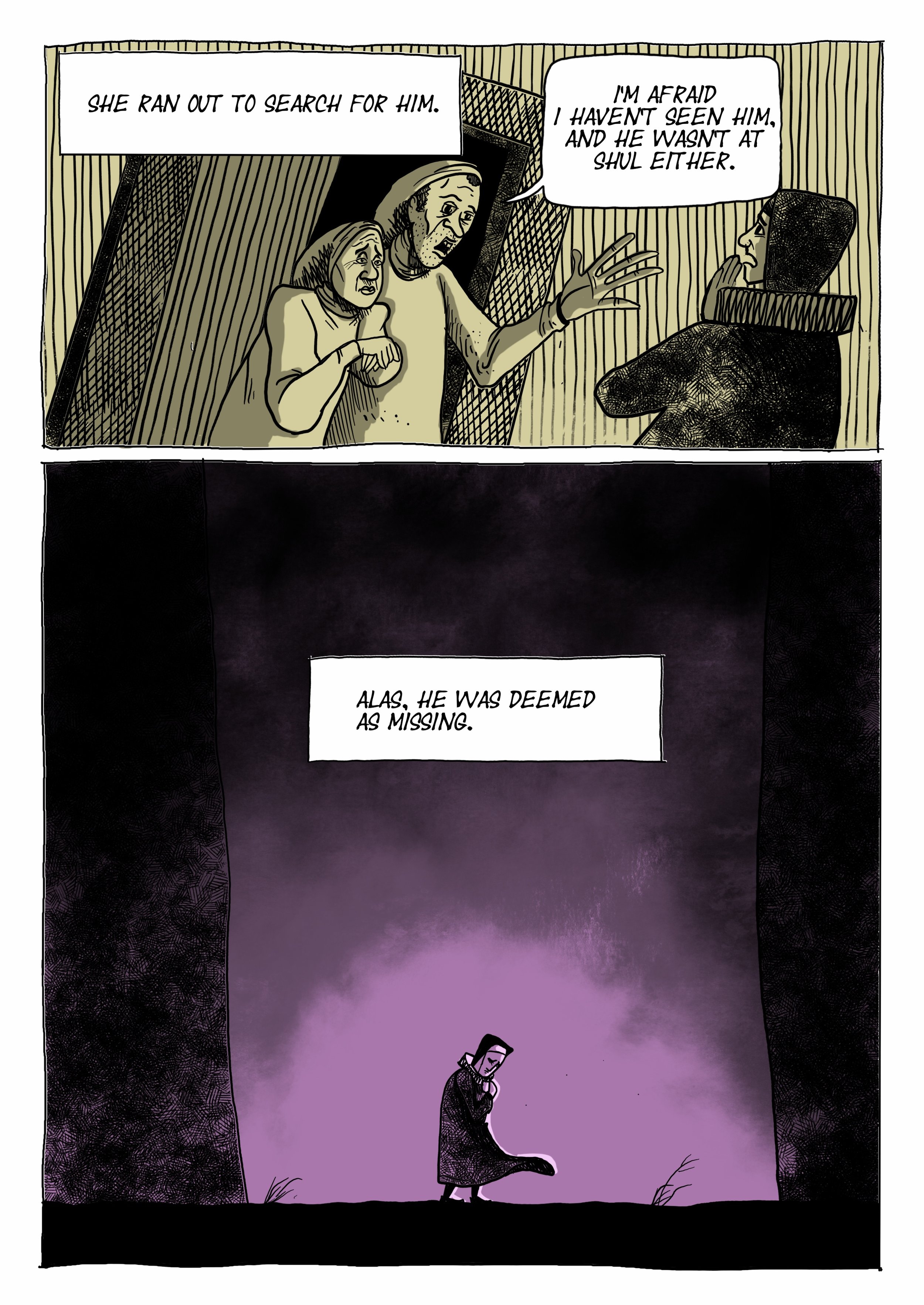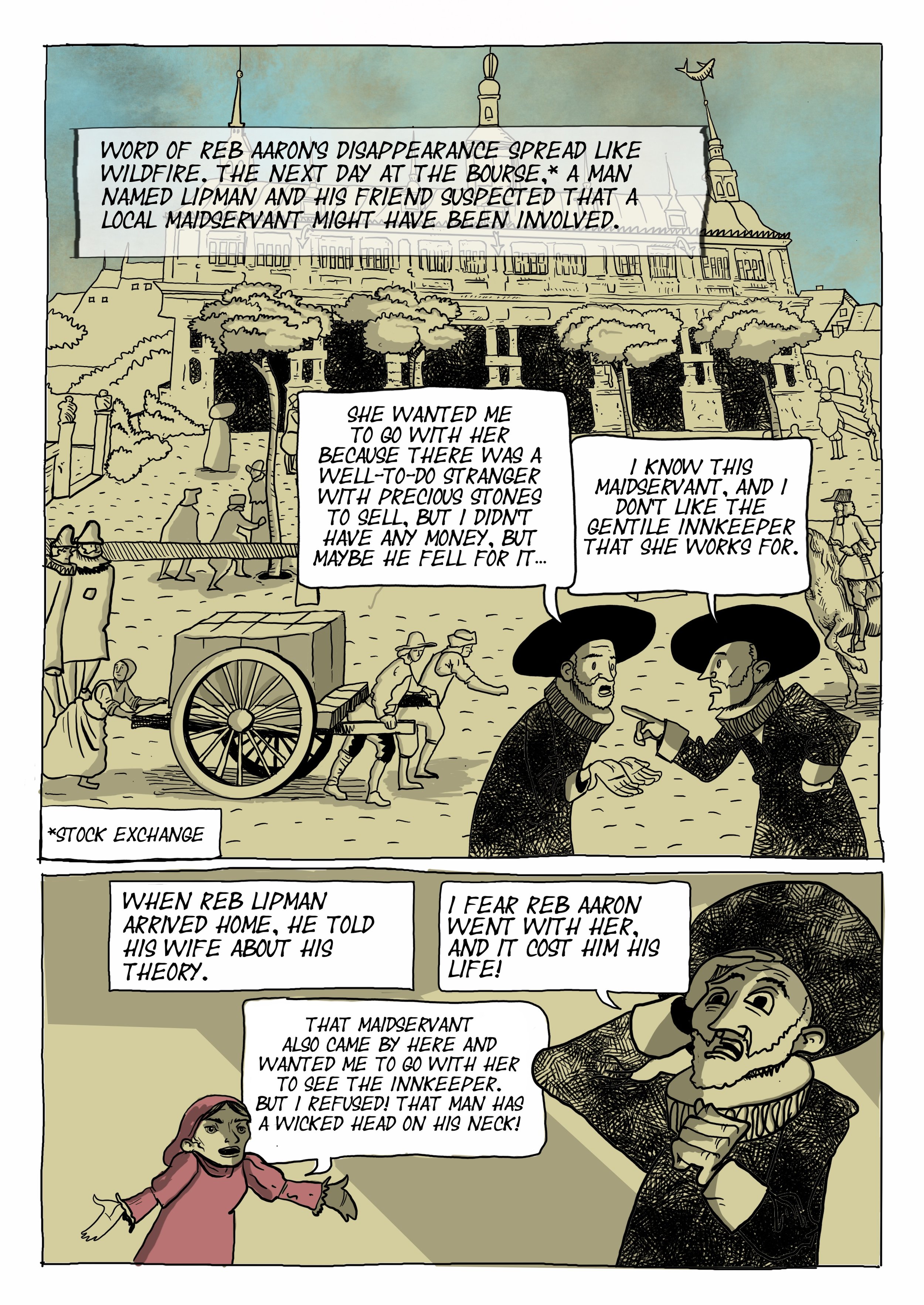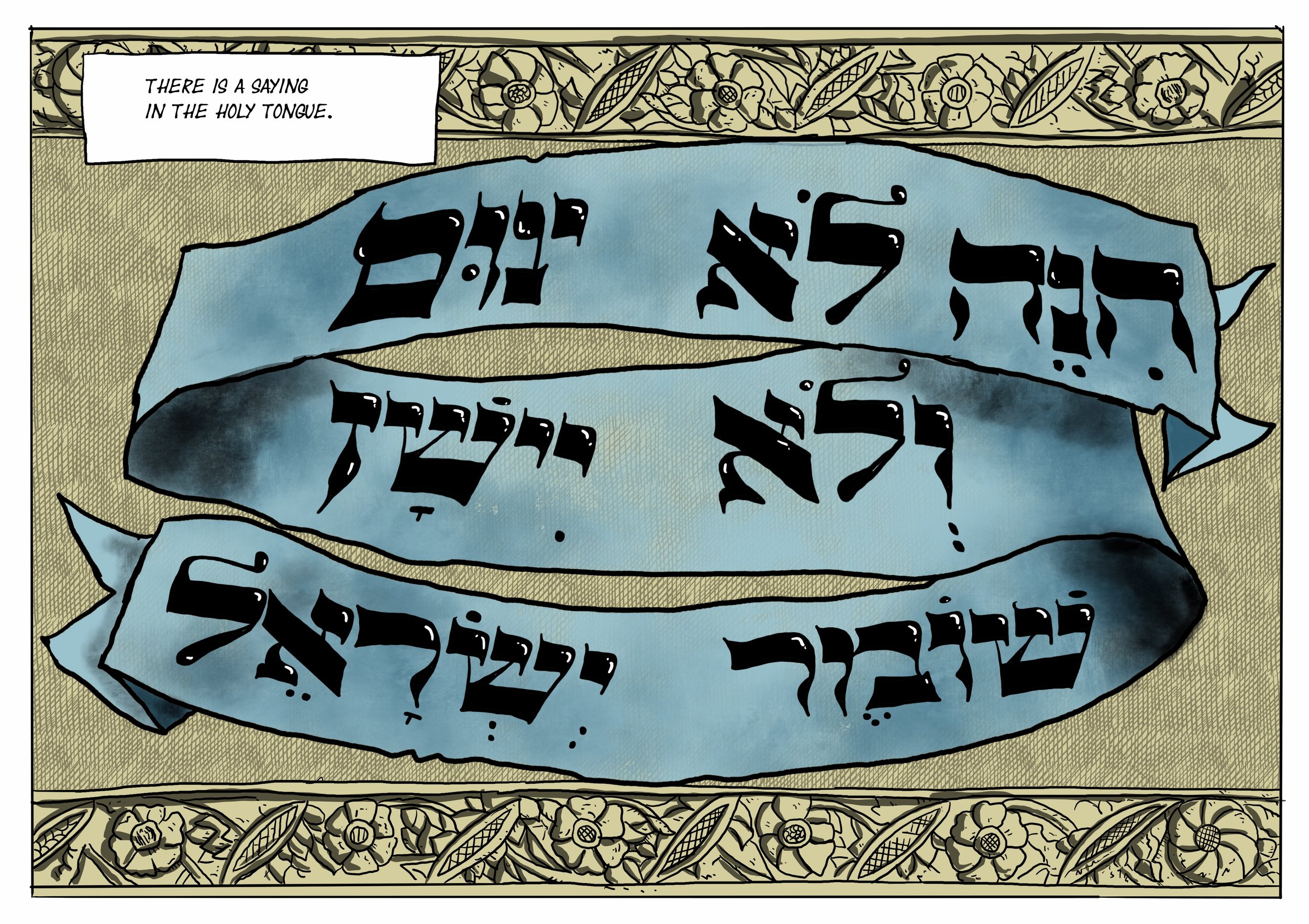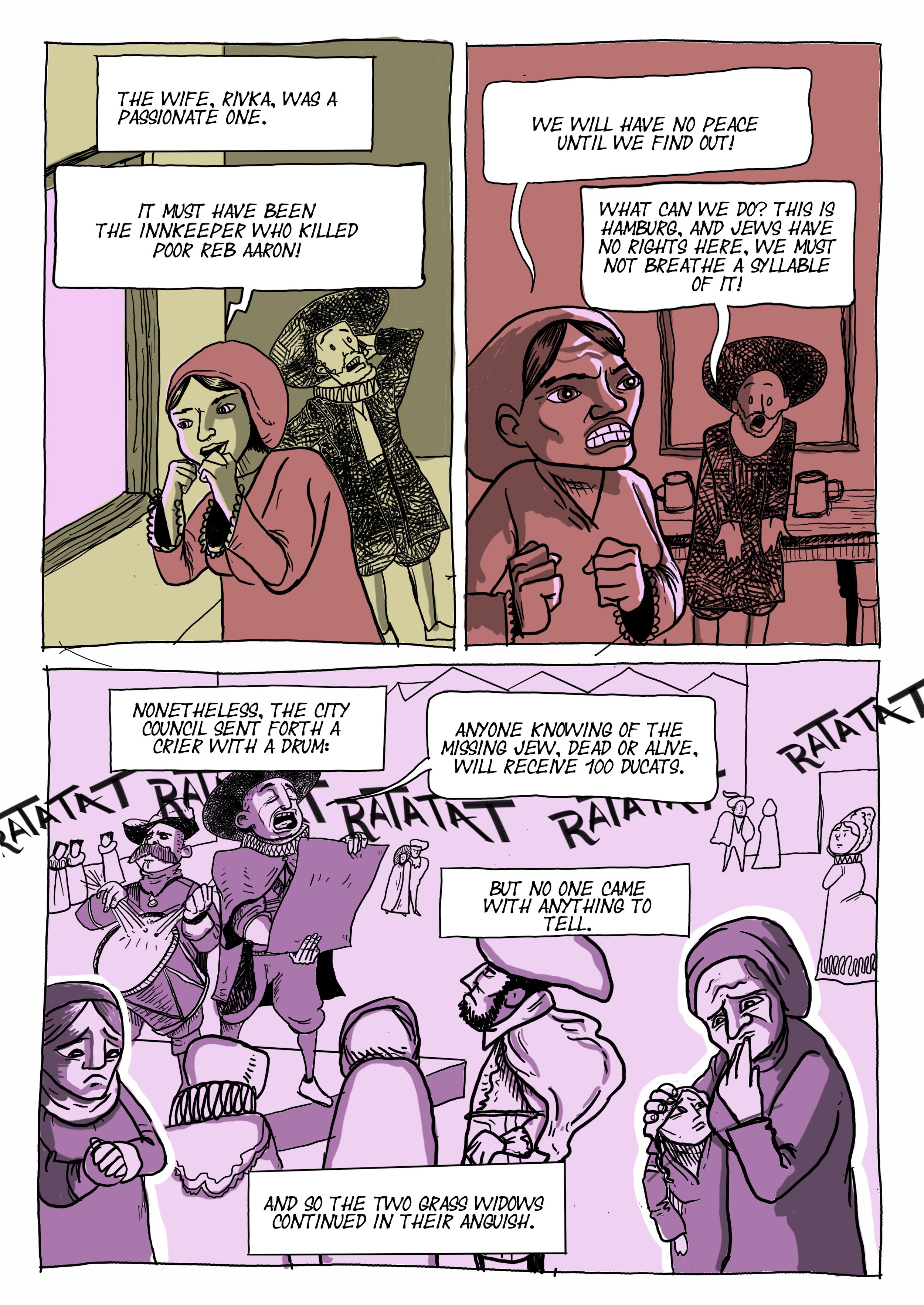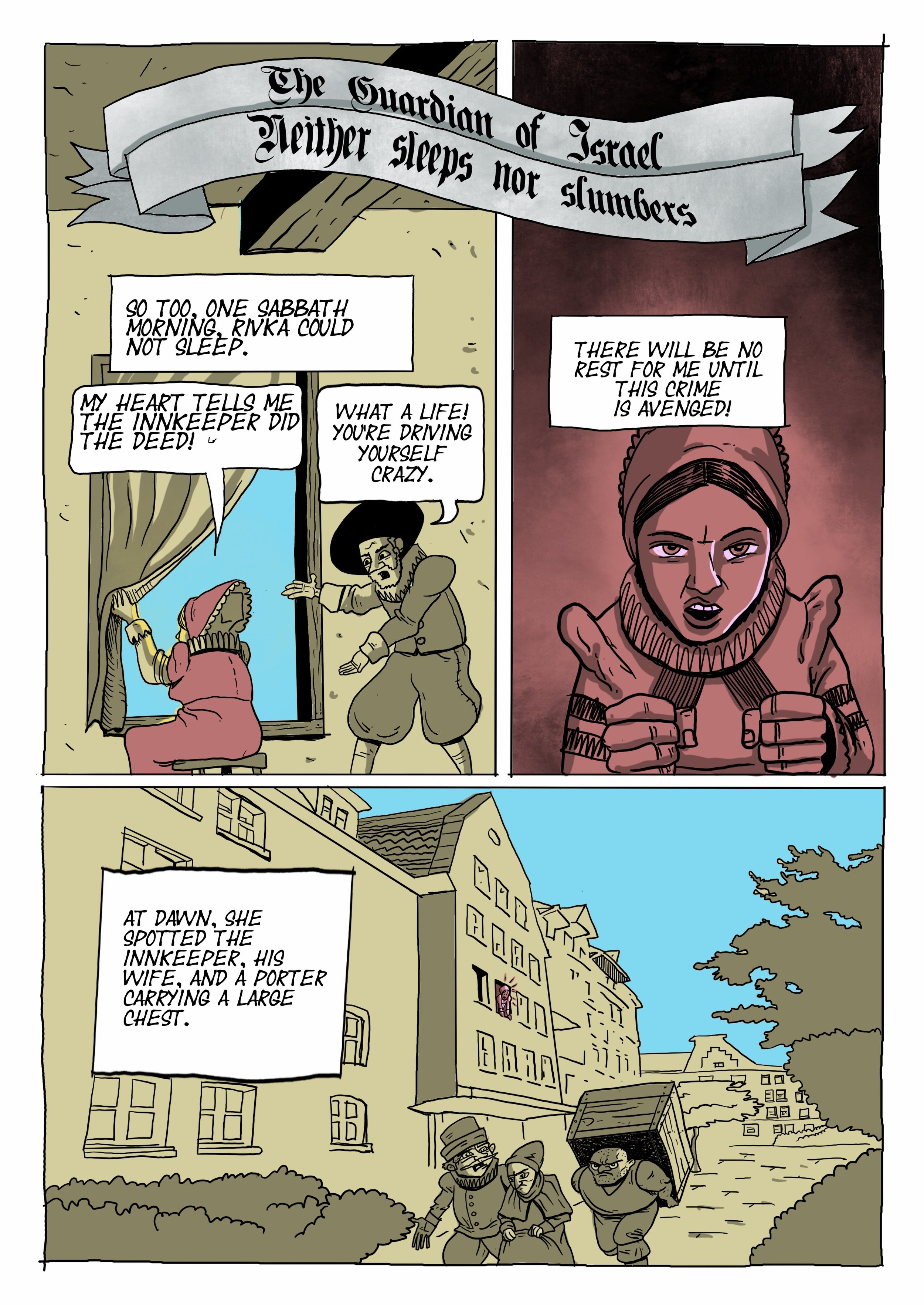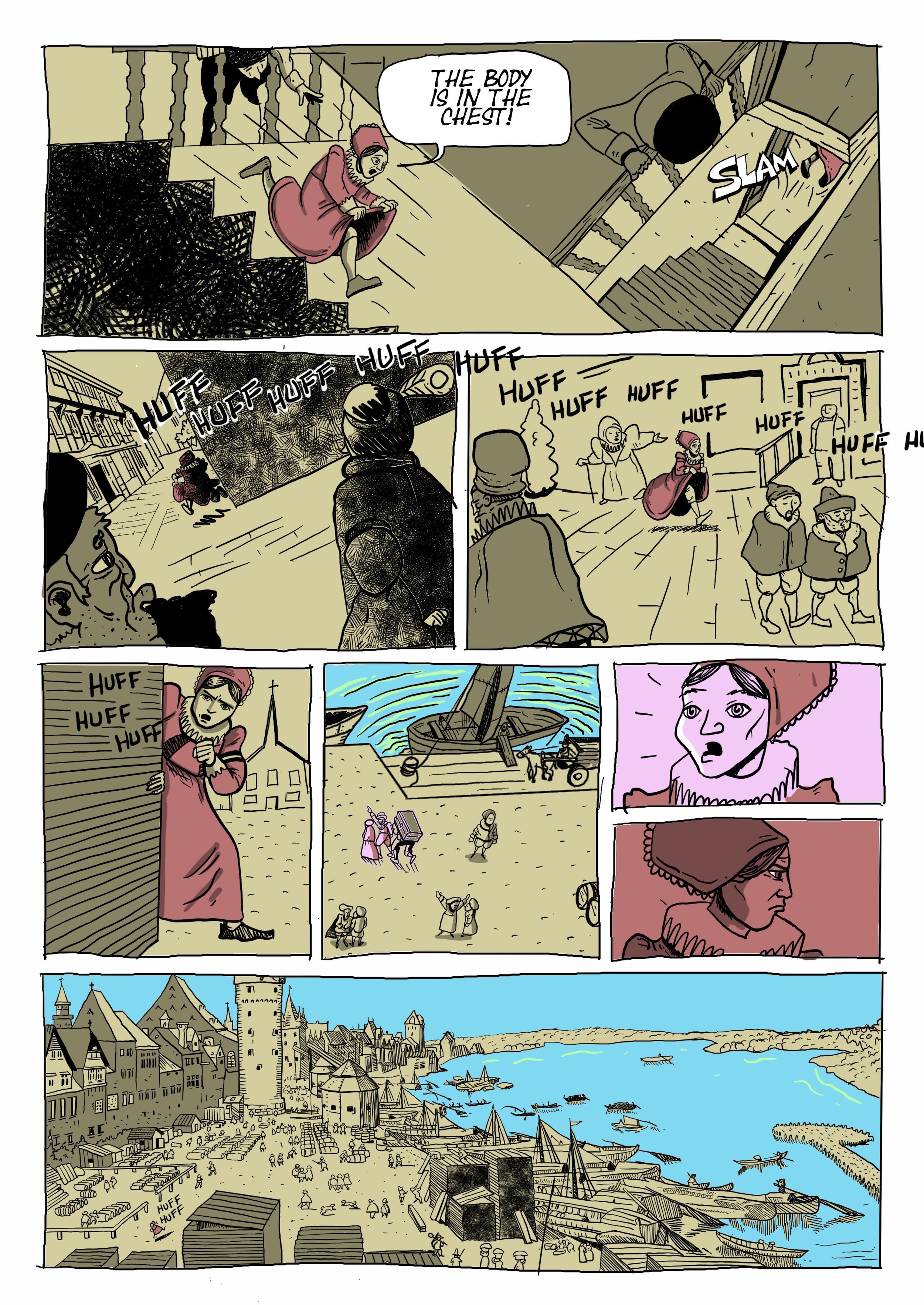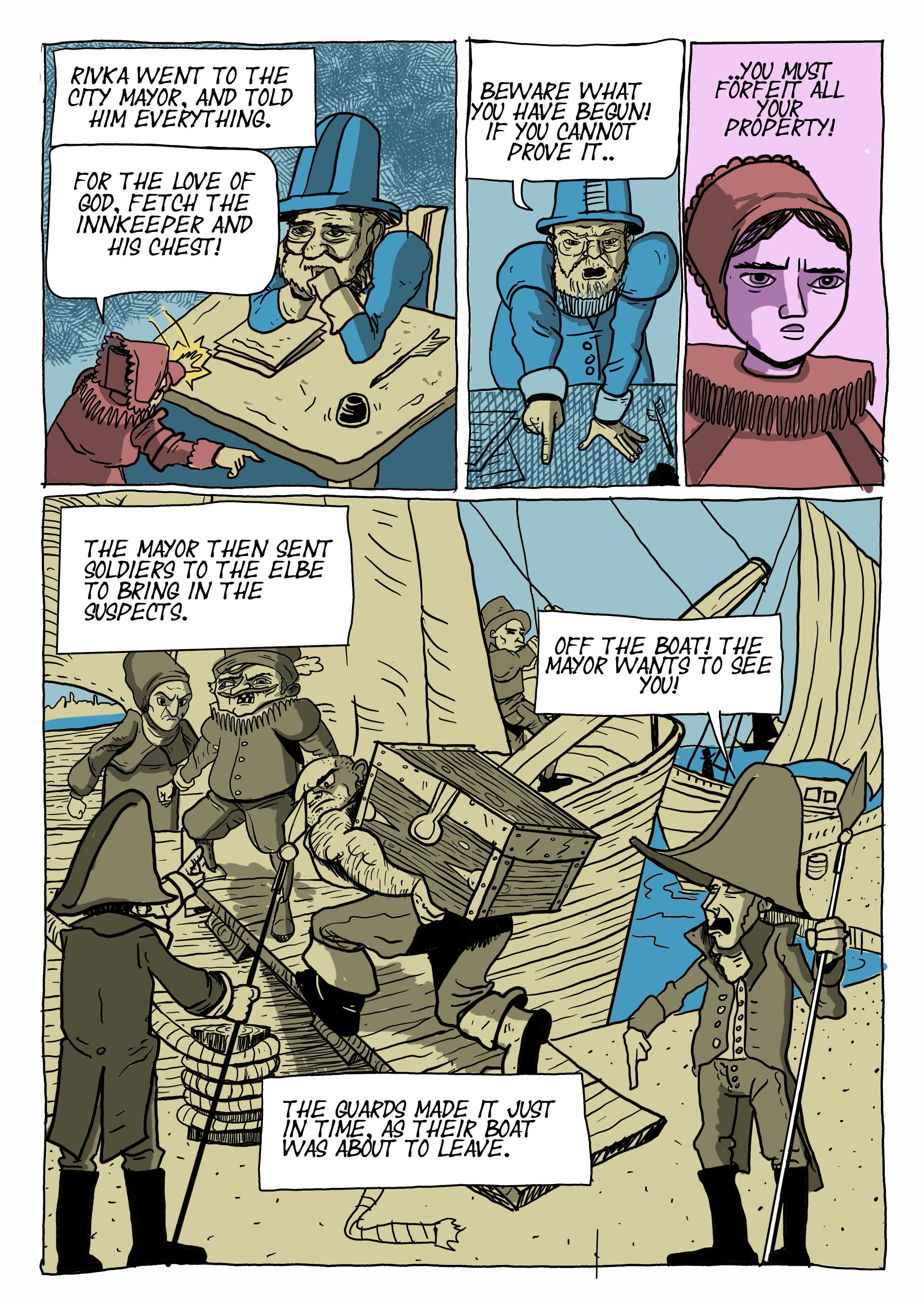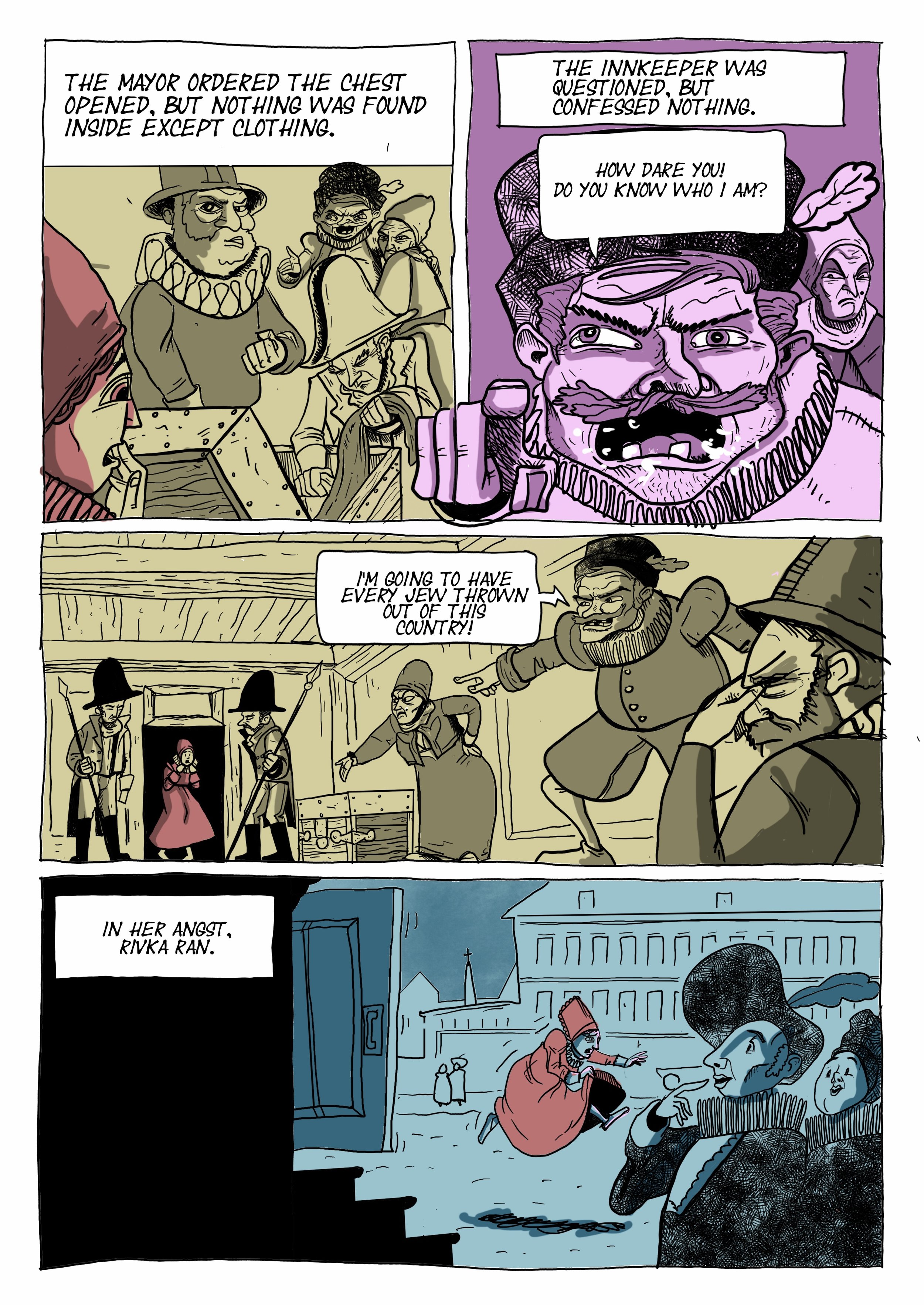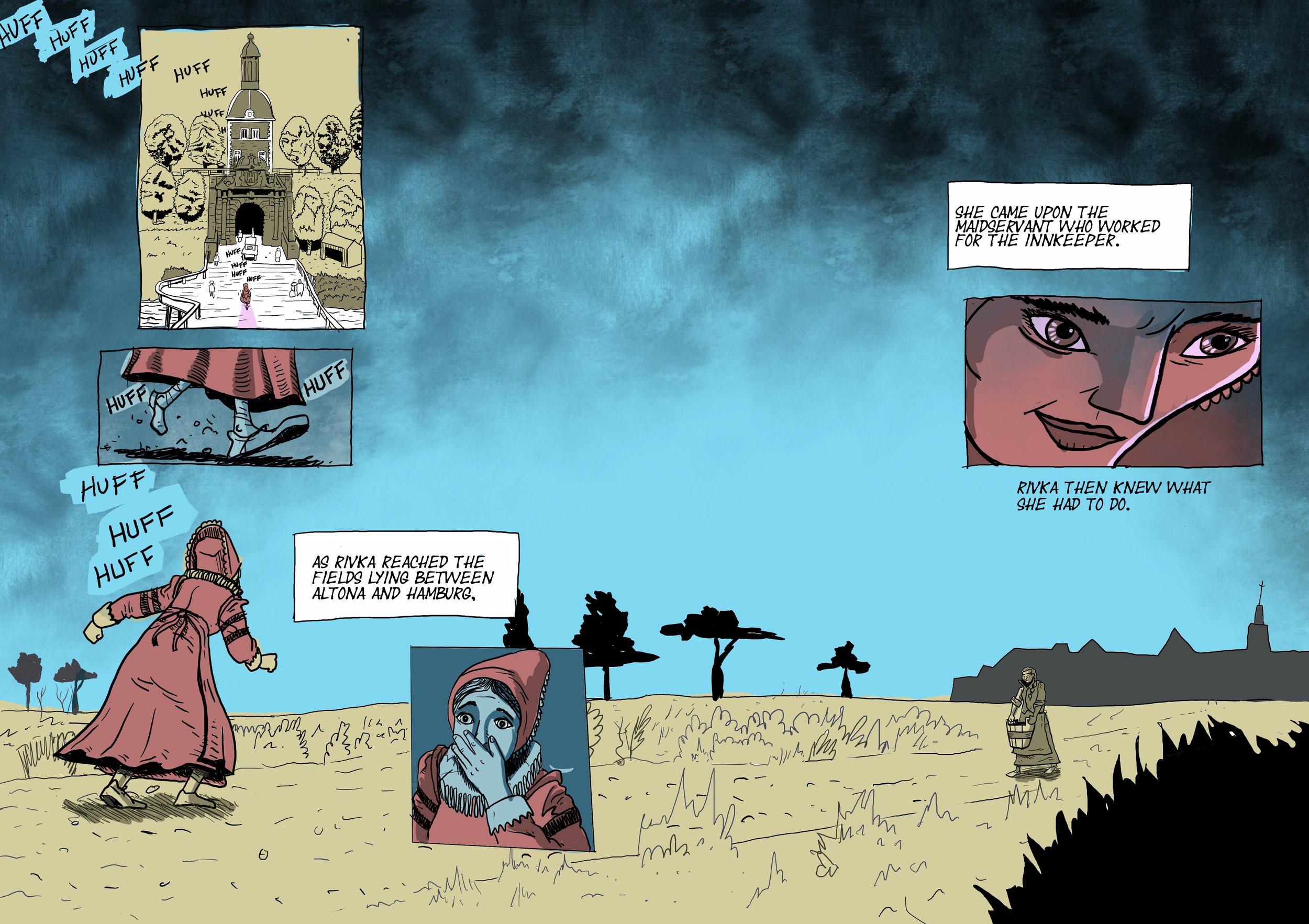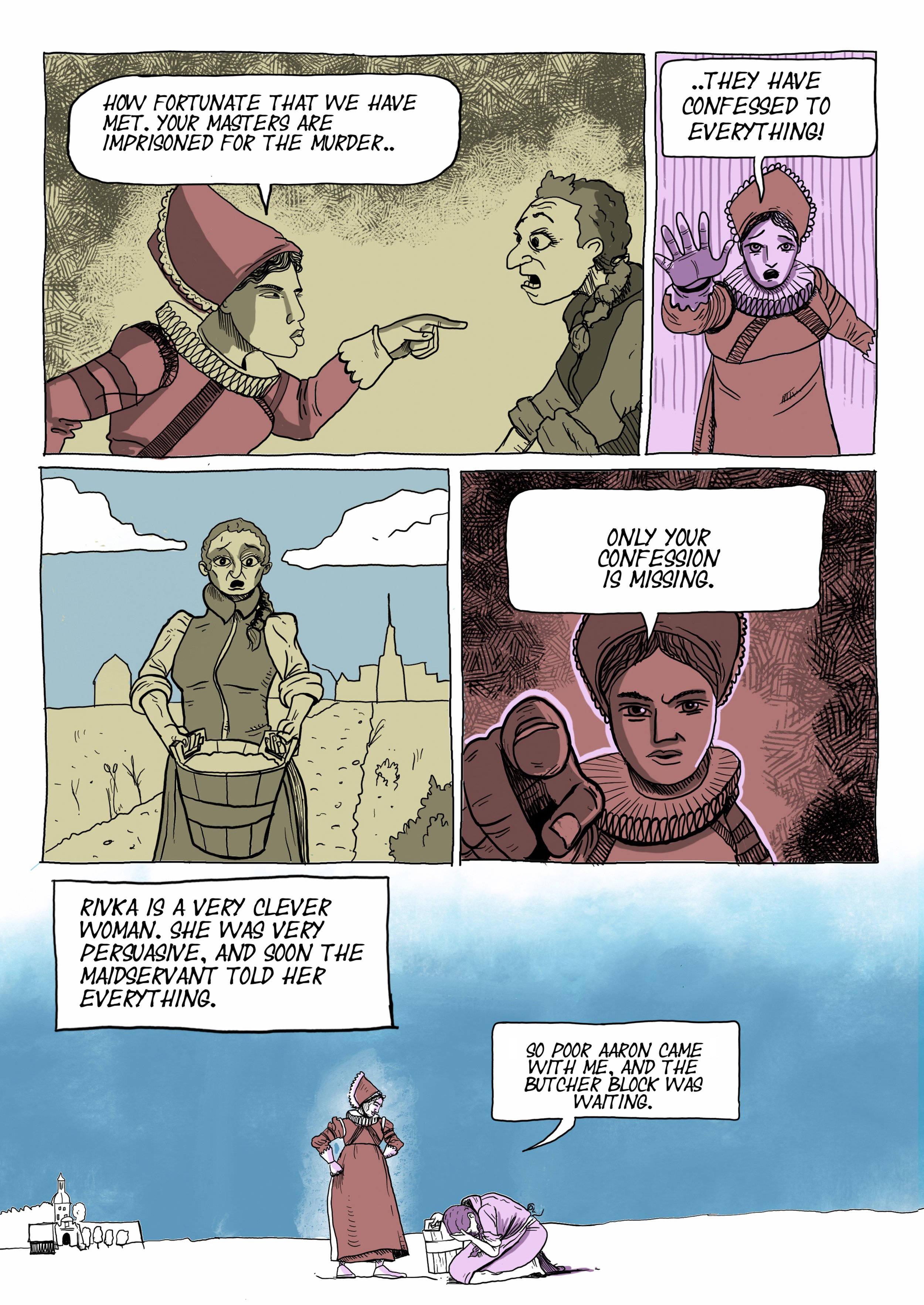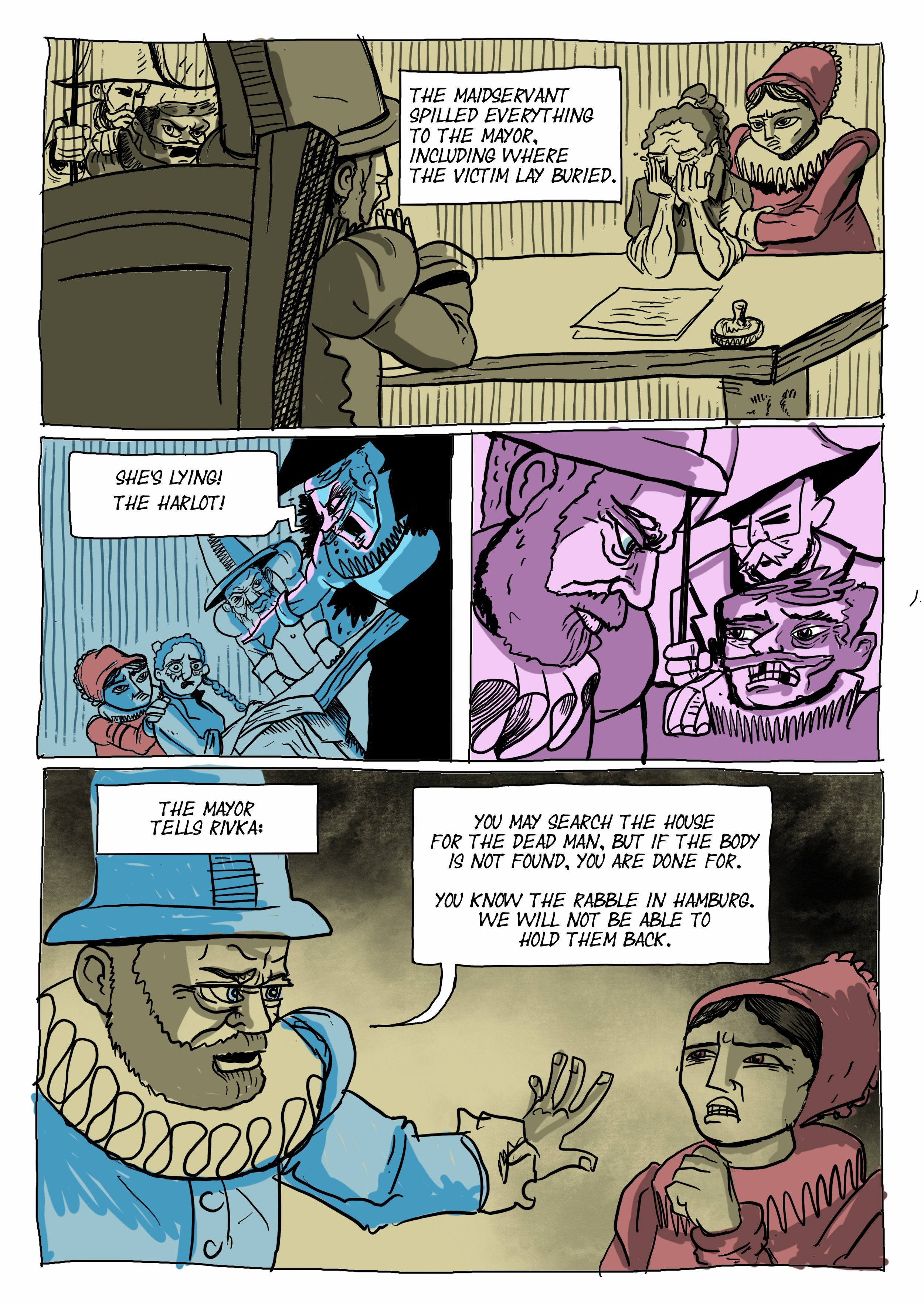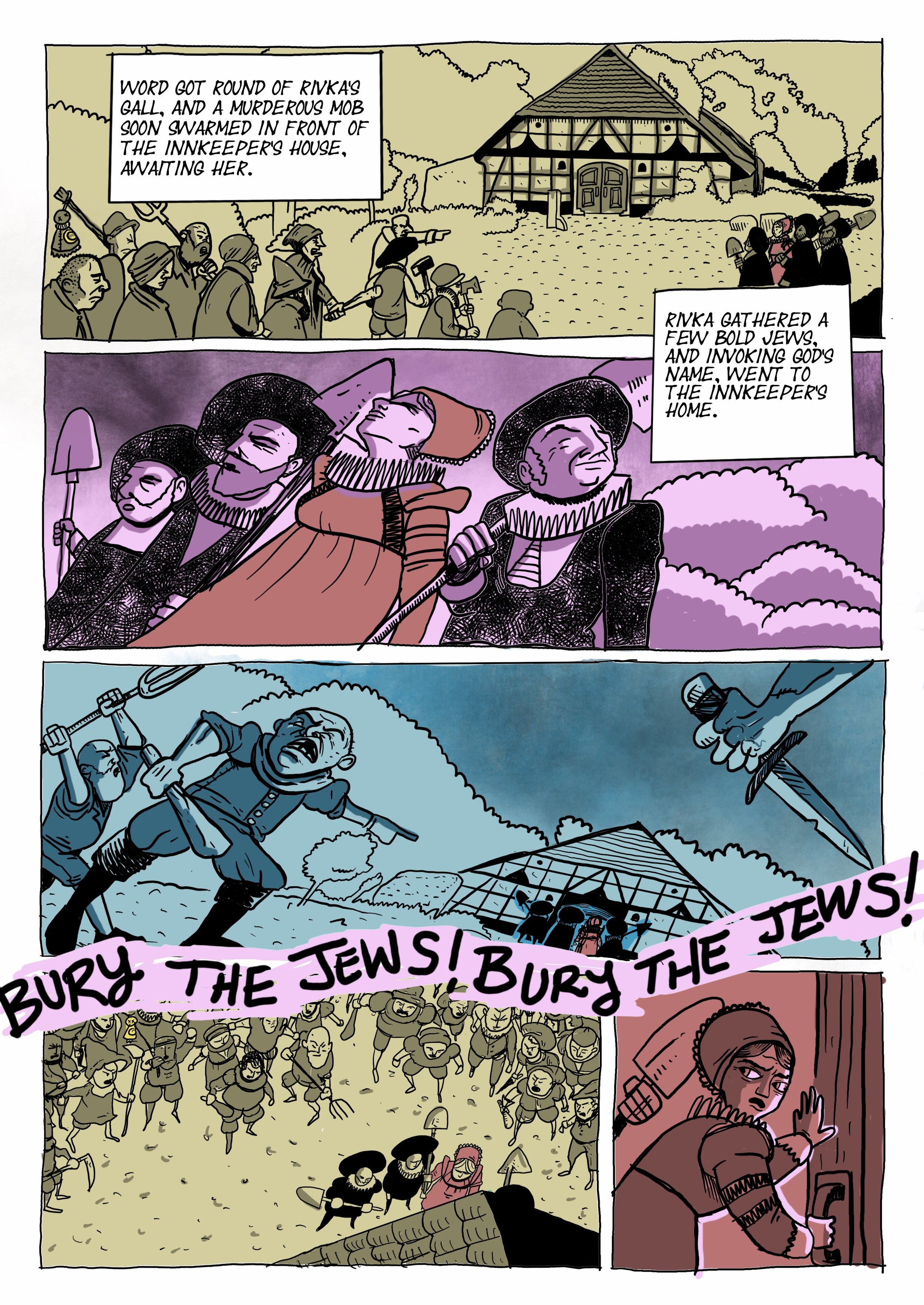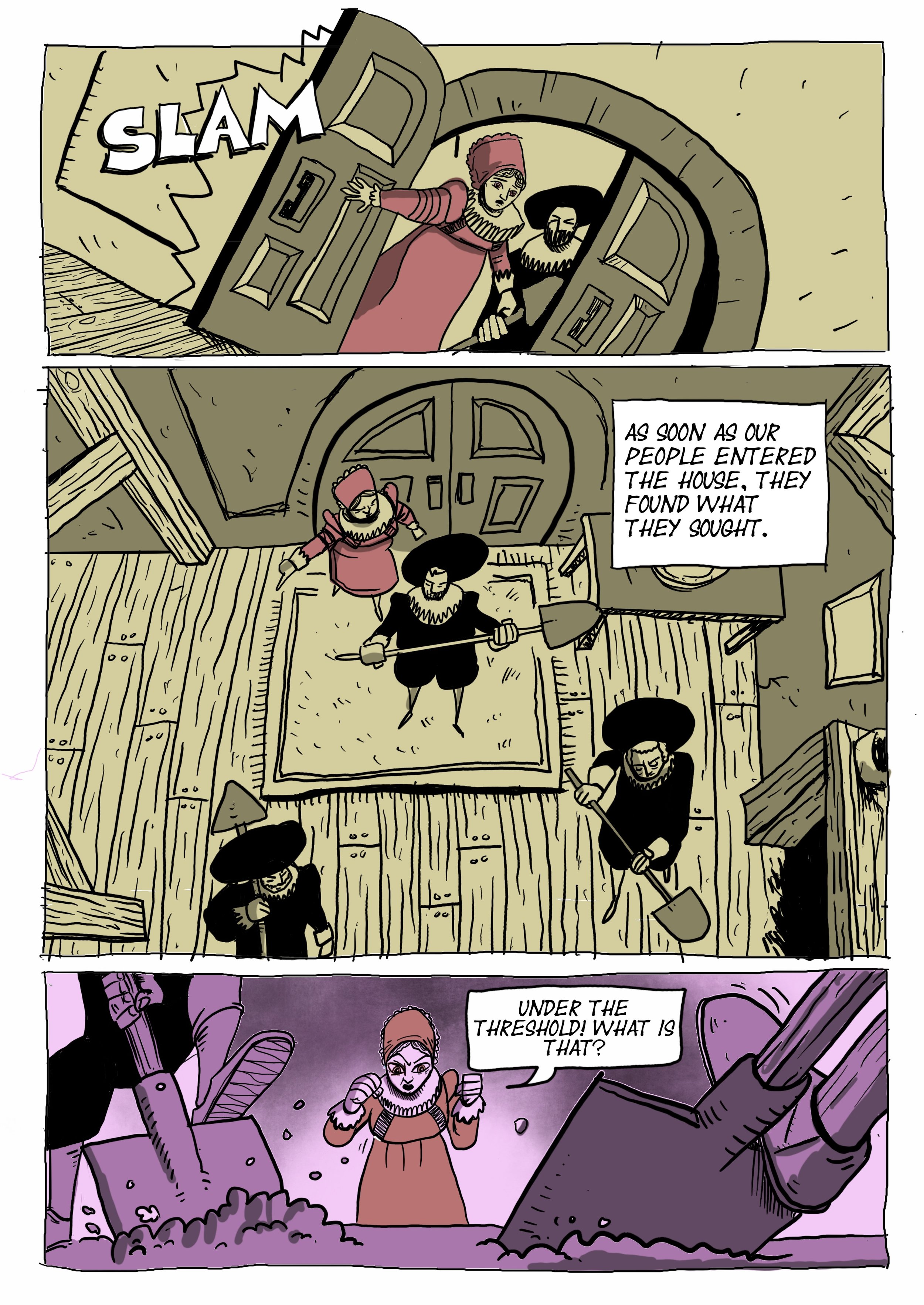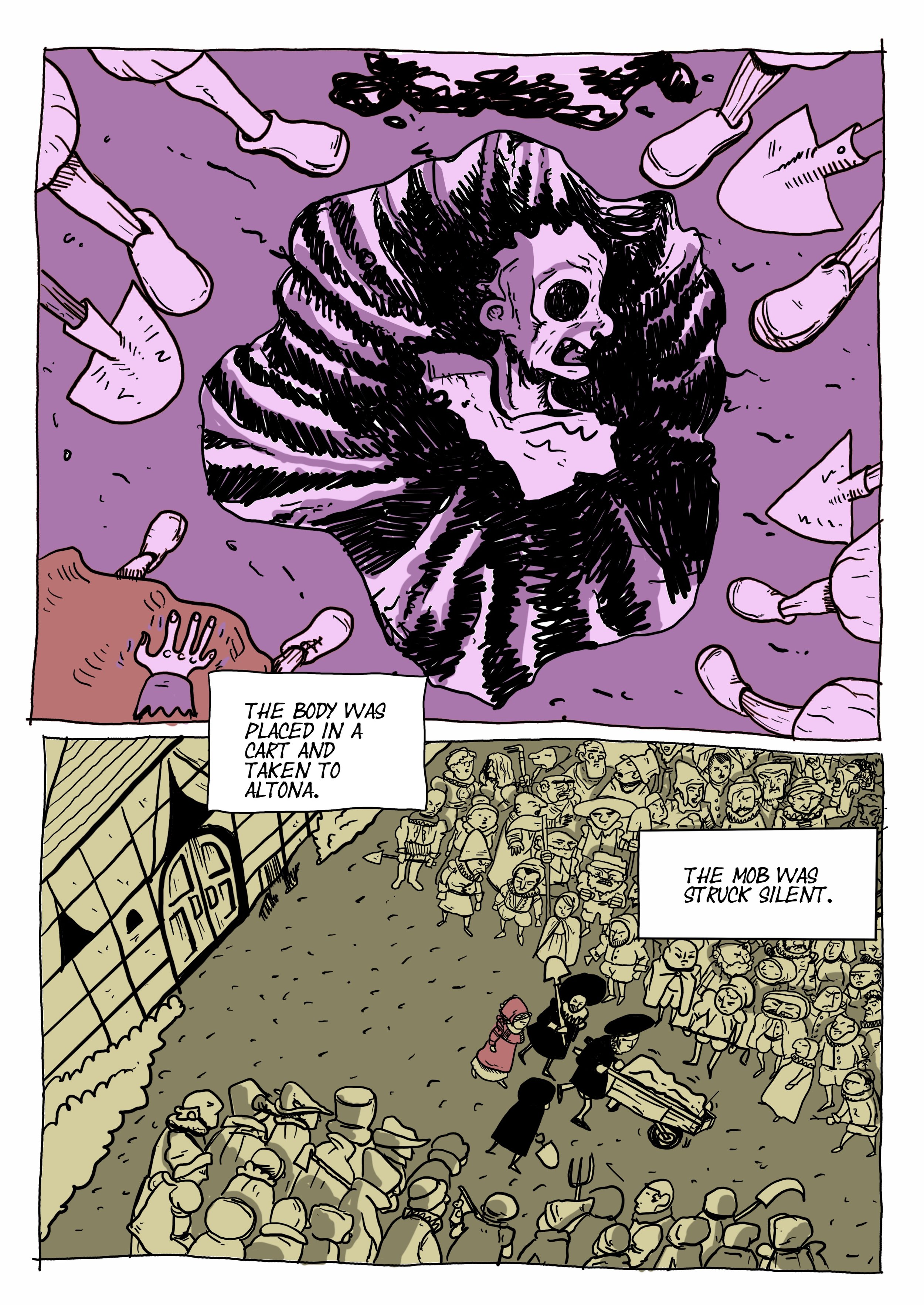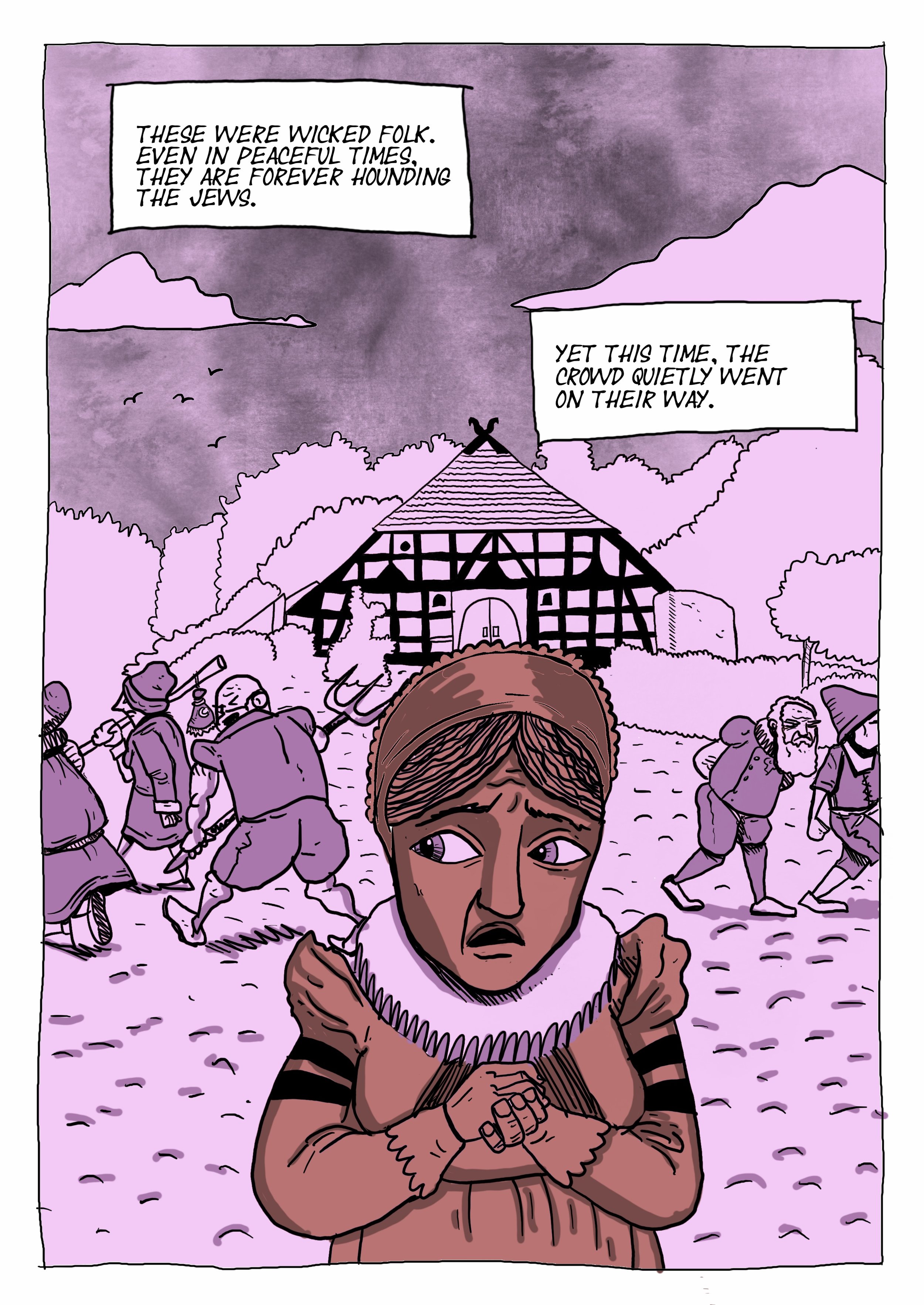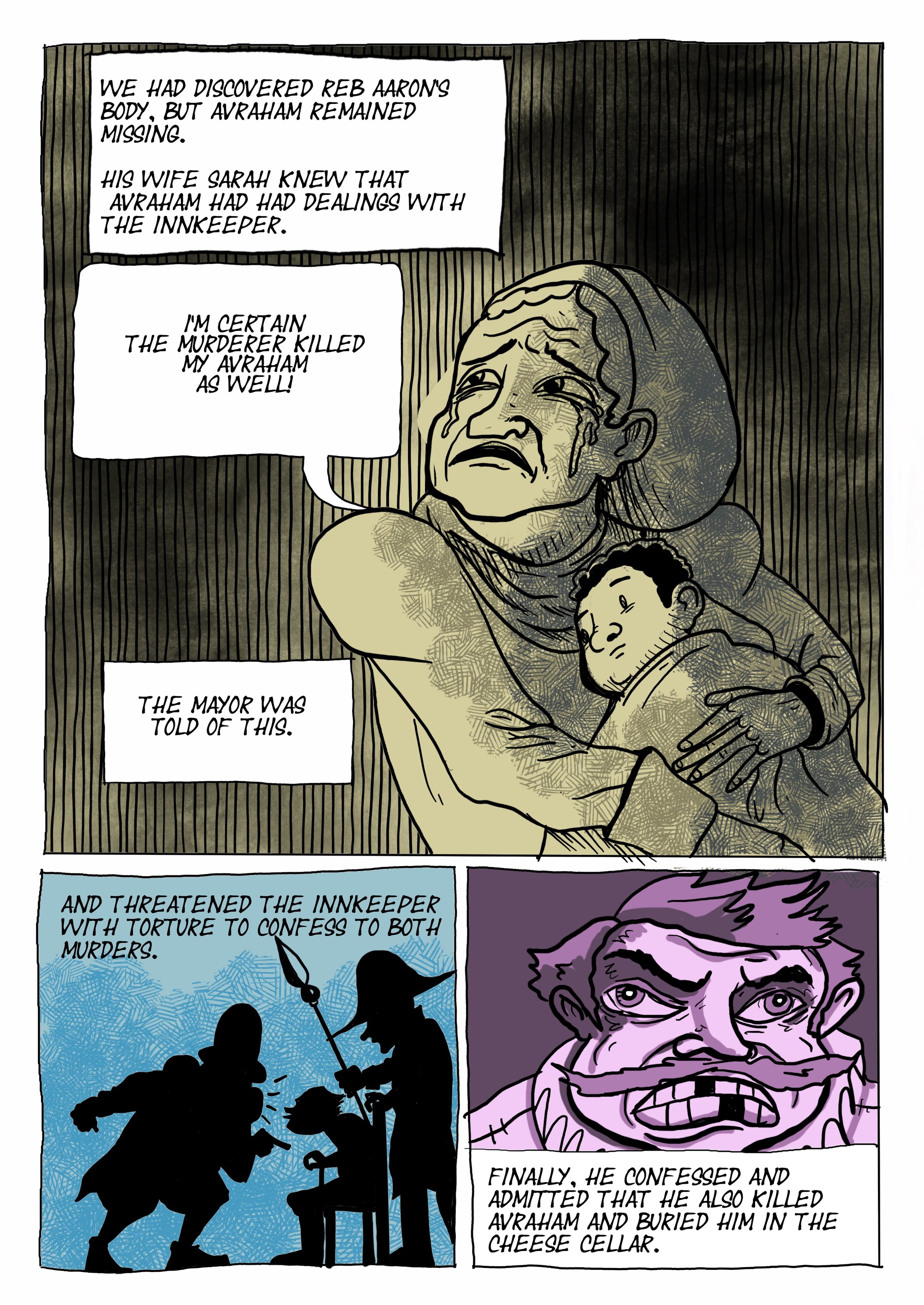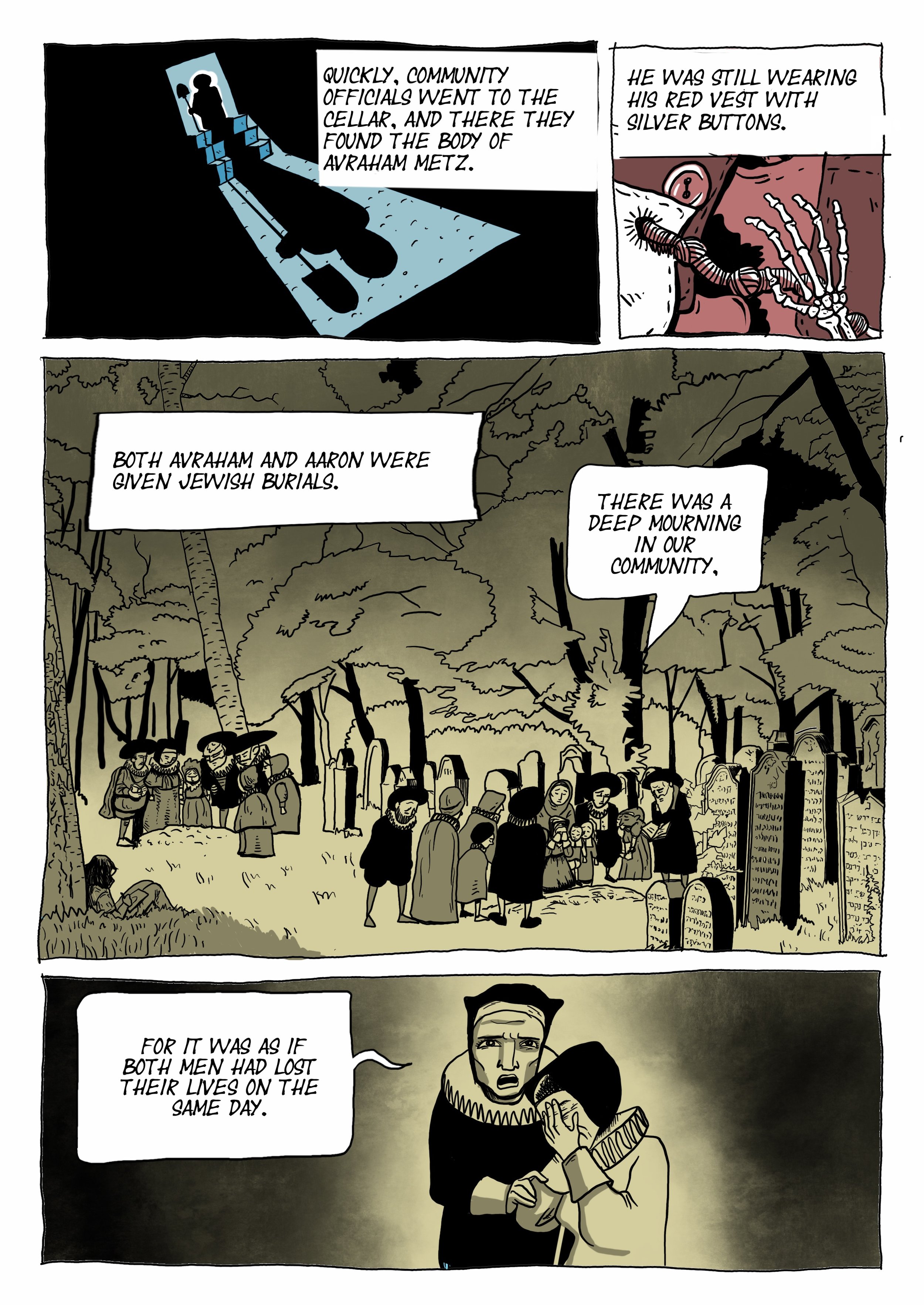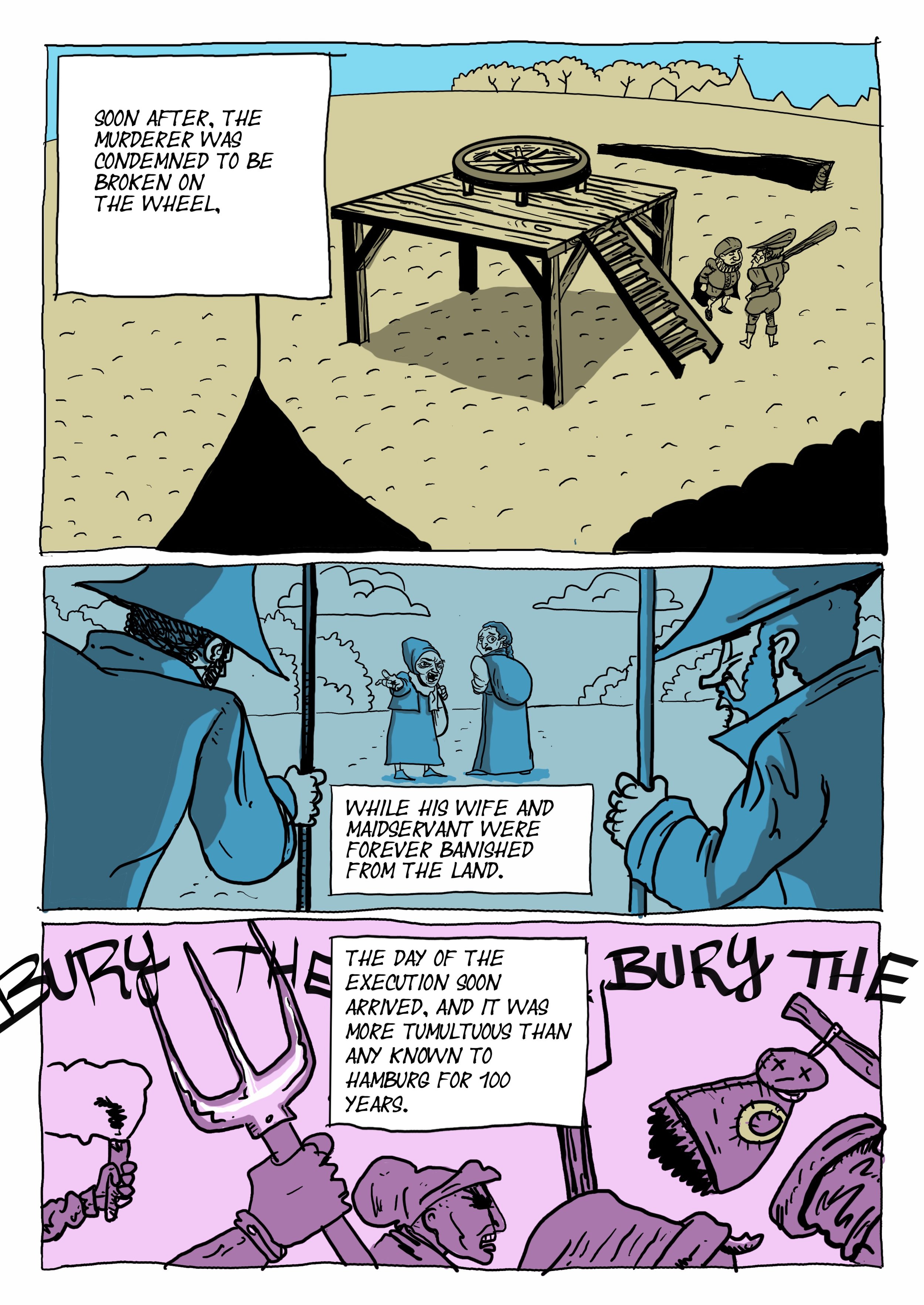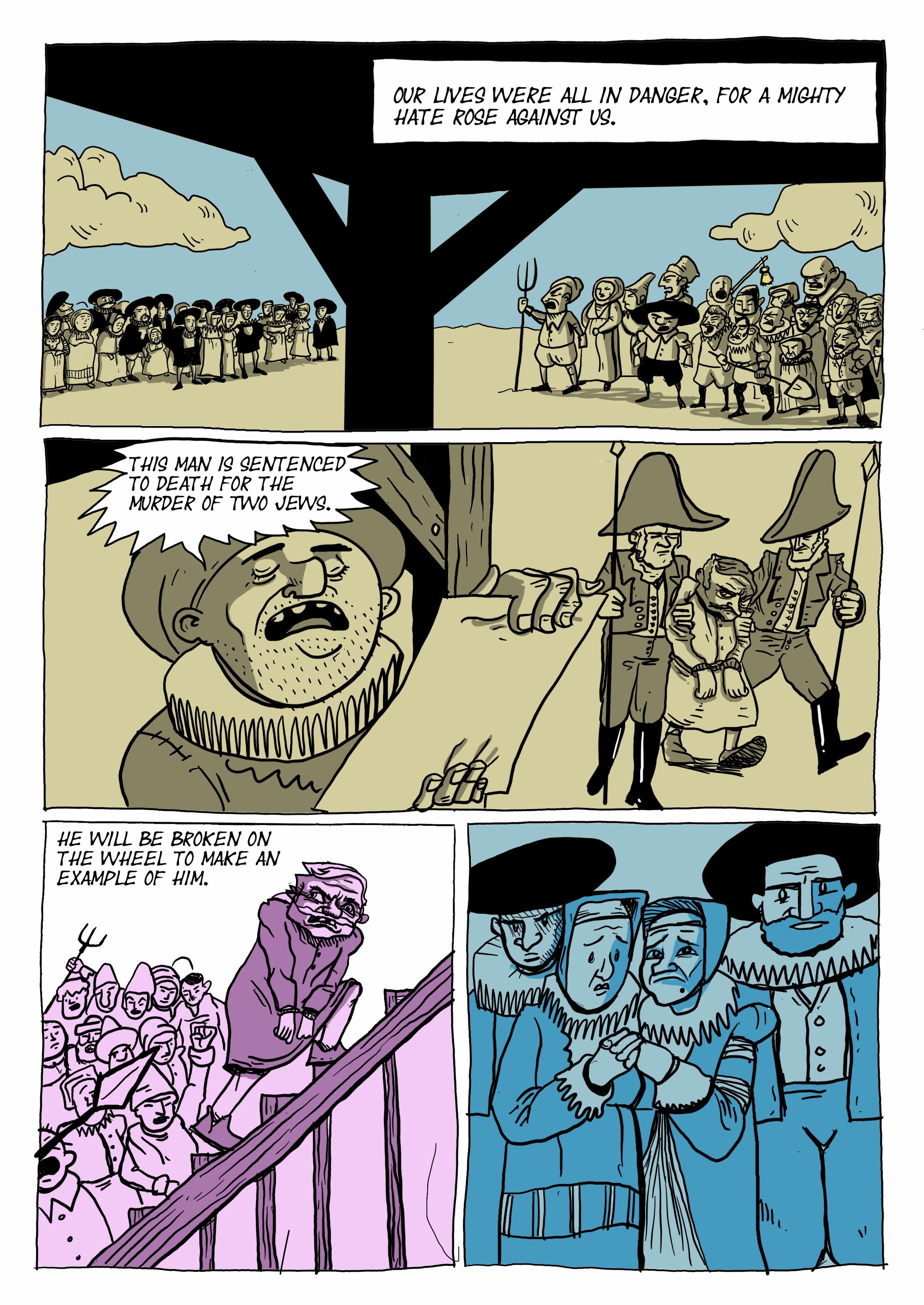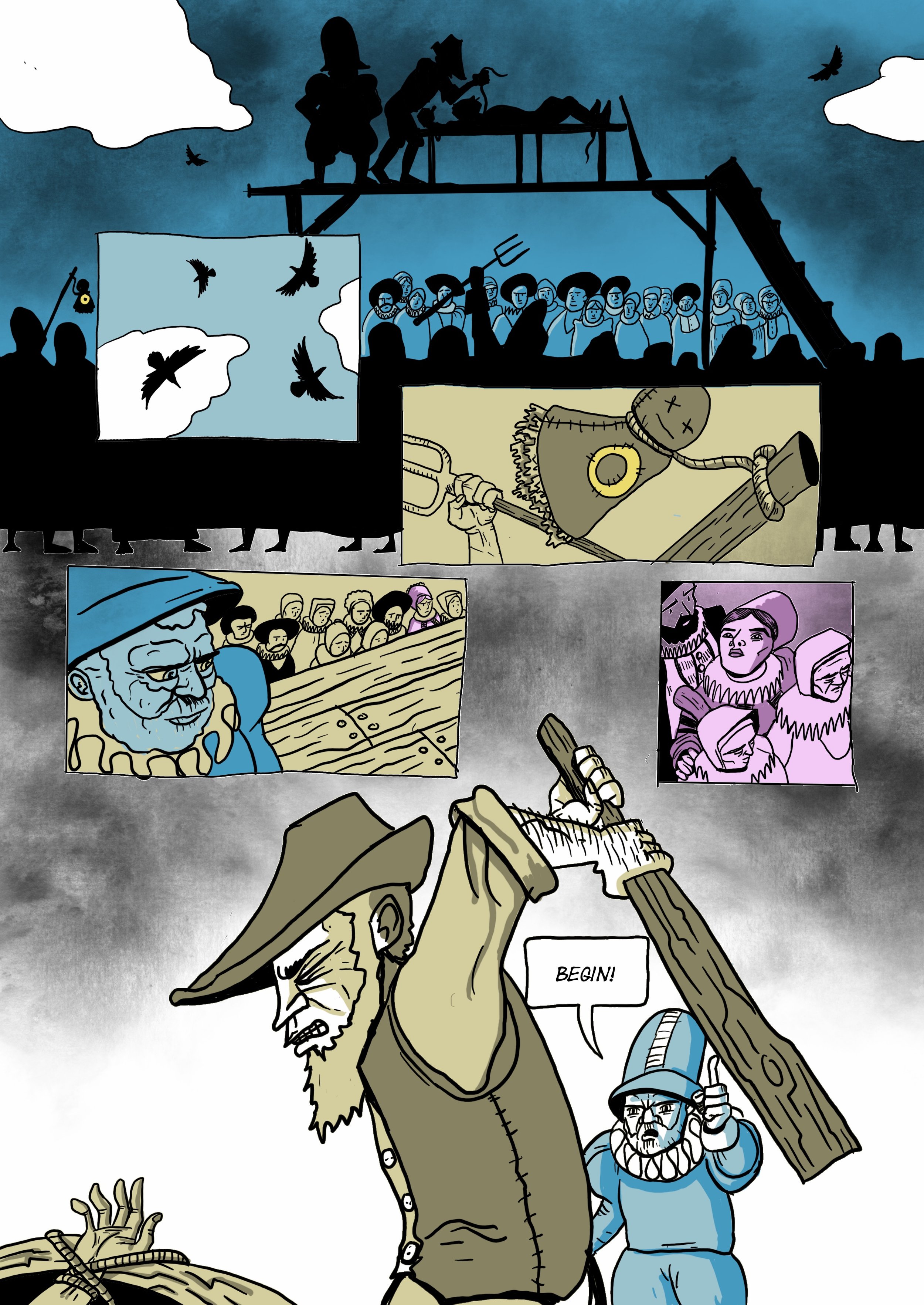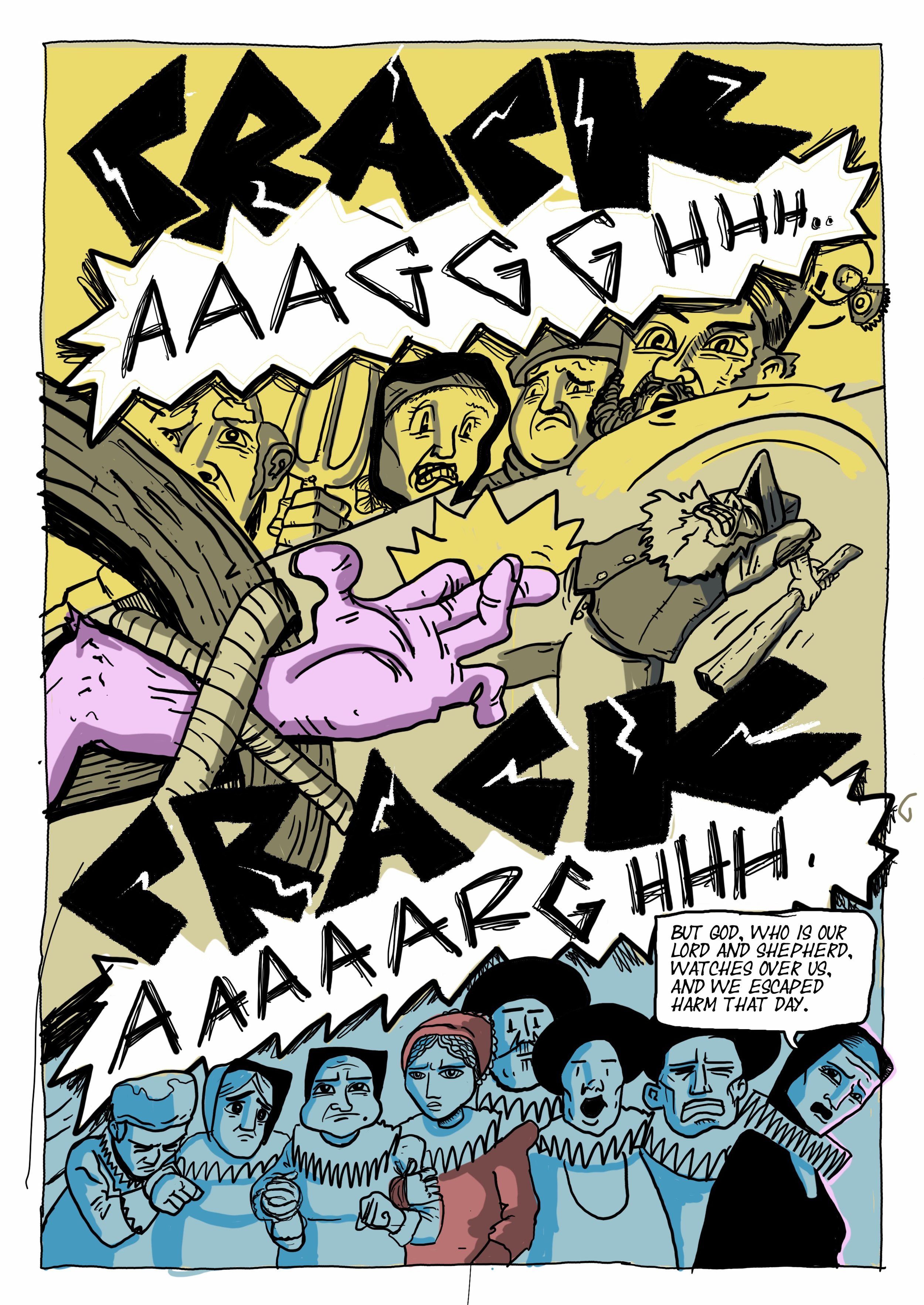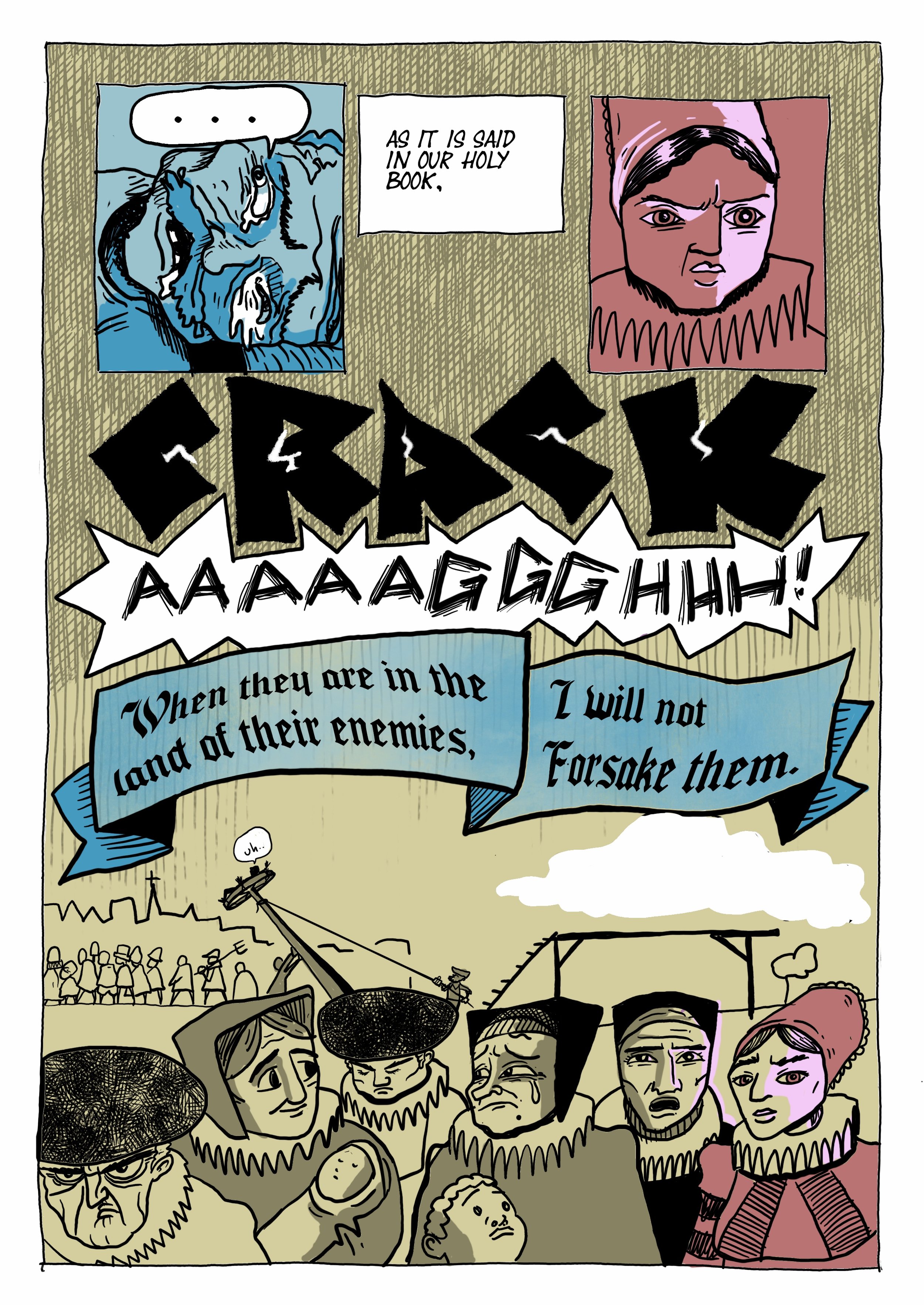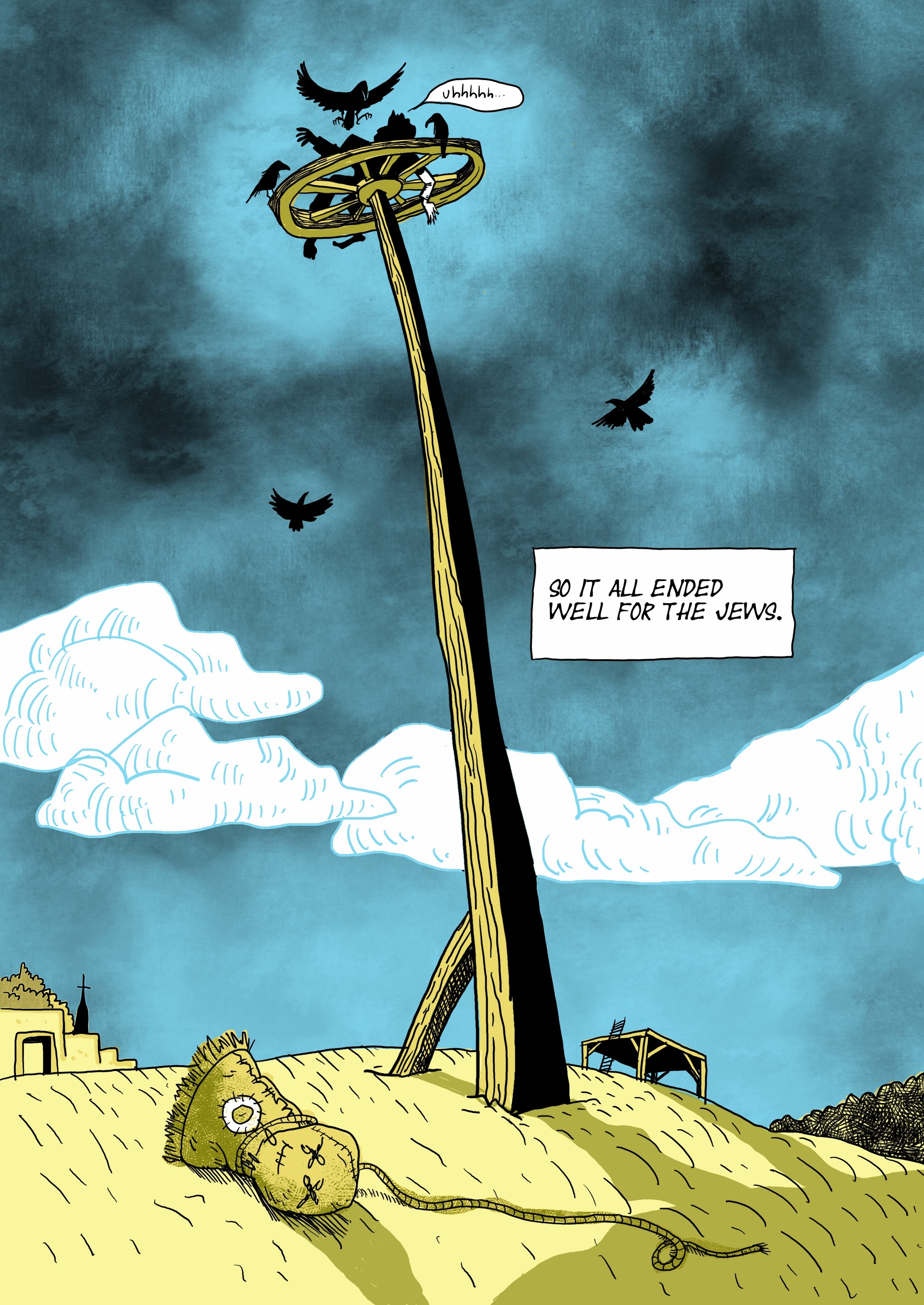Grass Widow
Mat and Julie Tonti
Artist Mat Tonti and history educator Julie Tonti are a husband-and-wife team working to bring the diary of Glückl bas Lieb to a broader audience by reimagining it as a graphic novel. They are based in Silver Spring, MD.
Glückl bas Lieb (1646-1724) was a Jewish author, mother, and businesswoman who lived most of her life in the city of Hamburg. After her husband passed away at a young age, she kept a diary to help relieve her loneliness and anguish. Her writing is a fascinating account of her personal life and inner thoughts, as well as an account of Jewish communal life at the time.
The episode of the grass widow, recounted in Glückl’s diary and presented here, opens with two women experiencing “marital uncertainty” after their husbands disappear without a trace. (According to Jewish law, a woman cannot remarry while her husband is unaccounted for and remains an agunah, a chained woman.) Thanks to the investigative efforts of Rivka, a third woman in the community, we learn that the men have been murdered and buried by a non-Jewish innkeeper. Rivka puts her life—and the well-being of the entire Jewish community—at risk when she brings the murderer before the court in Hamburg. Strikingly, for Glückl, God’s protection is the only explanation for the story’s peaceful resolution. Although this story ends well, it leads us to wonder how many times the Jewish community stayed silent out of fear when their non-Jewish neighbors were in the wrong.
The text here is based on Glückl of Hameln, Marvin Lowenthal, trans. (New York, Schocken Books, 1977). Used with permission.
